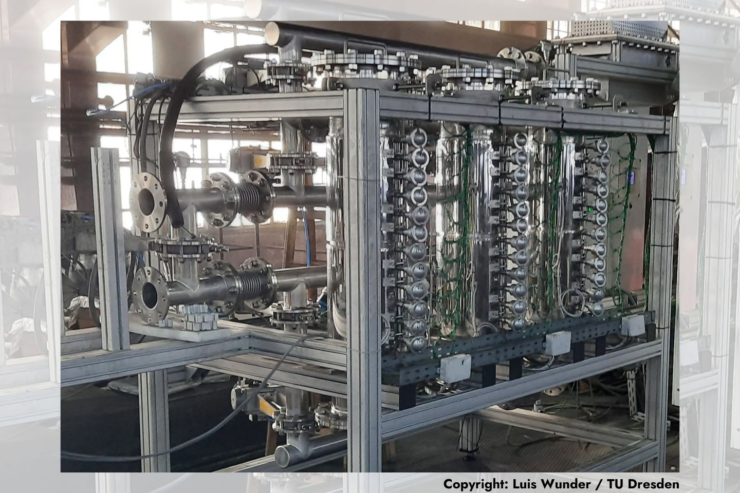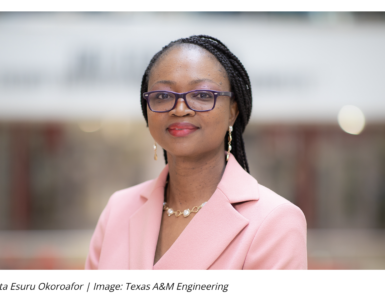Hydrogen – SPIE handles automation of a pilot system for a research project led by the Dresden University of Technology in Germany.
SPIE, the independent European leader in multi-technical services in the areas of energy and communications, is further expanding its practical expertise in the field of hydrogen. The multi-technical service provider has contributed the automation technology for a pilot system at the Dresden University of Technology (TUD) for a research project at TUD in the field of recycling management. Specifically, this unit will be used to explore how pyrolysis gas components containing tar are converted into hydrogen, among other substances, which could be used in the basic materials industry or the mobility sector, for example.
The challenge of automation
For hydrogen to fulfil the hopes associated with it as an energy carrier in the future, production processes must be automated. In order to offer customers comprehensive service along the entire hydrogen value chain — from generation and transport to use in production plants, for example — the multi-technical service provider also focuses on concrete implementation in challenging projects in the field of automation. One example is the research project on the use of composite waste for the circular economy at the Dresden University of Technology, which is headed by Professor Michael Beckmann, Chair of Energy Process Engineering.
🔥 What about we co-host a webinar? Let's educate, captivate, and convert the hydrogen economy!
Hydrogen Central is the global go-to online magazine for the hydrogen economy, we can help you host impactful webinars that become a global reference on your topic and are an evergreen source of leads. Click here to request more details
Utilisation of composite waste for the circular economy
Composite waste frequently contains a mixture of materials with a high level of contamination that is difficult to separate, which often makes materials recycling neither technically nor economically feasible. Using thermochemical recycling processes, this waste can be thermally de-coated to recover valuable materials such as ferrous and non-ferrous metals, rare earths or plastic oils for use in the raw materials industry. In the pyrolysis processes used, thermal energy is supplied in the absence of air to convert the organic waste components into a fuel gas containing tar, which is then burnt. The resulting exhaust gas is used to heat the pyrolysis process, among other things. A solid residue remains, containing valuable materials which can be treated and fed back into production processes.
The aim of the current research project at TUD is to enable the use of this pyrolysis gas in other sectors in the future, for the production of raw materials or mobility, for example. To do so, the higher hydrocarbons contained in the pyrolysis gas must be converted into other gases, such as hydrogen.
Professor Michael Beckmann, said:
The innovative aspect of the process now being tested is the use of ceramic oxygen carrier materials, which we use to convert the tars into a synthesis gas containing hydrogen.
“After separation, the hydrogen in the synthesis gas can be supplied to the growing hydrogen market. We are delighted that SPIE was able to contribute so much to the realisation of the pilot system for this pioneering project”,
Comprehensive service in the innovative field of hydrogen
SPIE supplied the technical equipment for the pilot unit. The team at the Schwarze Pumpe site of the Calau branch of the City Networks & Grids operational division of SPIE Deutschland & Zentraleuropa automated the three test reactors and installed the sensors as well as the instrumentation and control technology of the system. The experts also programmed the automation and control systems, which process and display physical parameters.
André Fuchs, Branch manager, appears satisfied:
I am very pleased to contribute to the utilisation of composite waste. At the same time, we were able to expand our expertise in the field of H2 automation technology.
“This is another milestone in our efforts to offer our customers comprehensive, expert service for complete systems with all components in the innovative field of hydrogen, from piping installation to electrical engineering and automation technology”.
[1] Funding comes from the economic stimulus plan “Sustainably out of the crisis”. Project title: “Development of a prototype unit for the production of an H2-rich synthesis gas using catalyst oxygen carrier materials as the basis for the development of a scalable carbon-neutral recycling plant”.
READ the latest news shaping the hydrogen market at Hydrogen Central
Hydrogen – SPIE handles automation of a pilot system for a research project led by the Dresden University of Technology in Germany. source








